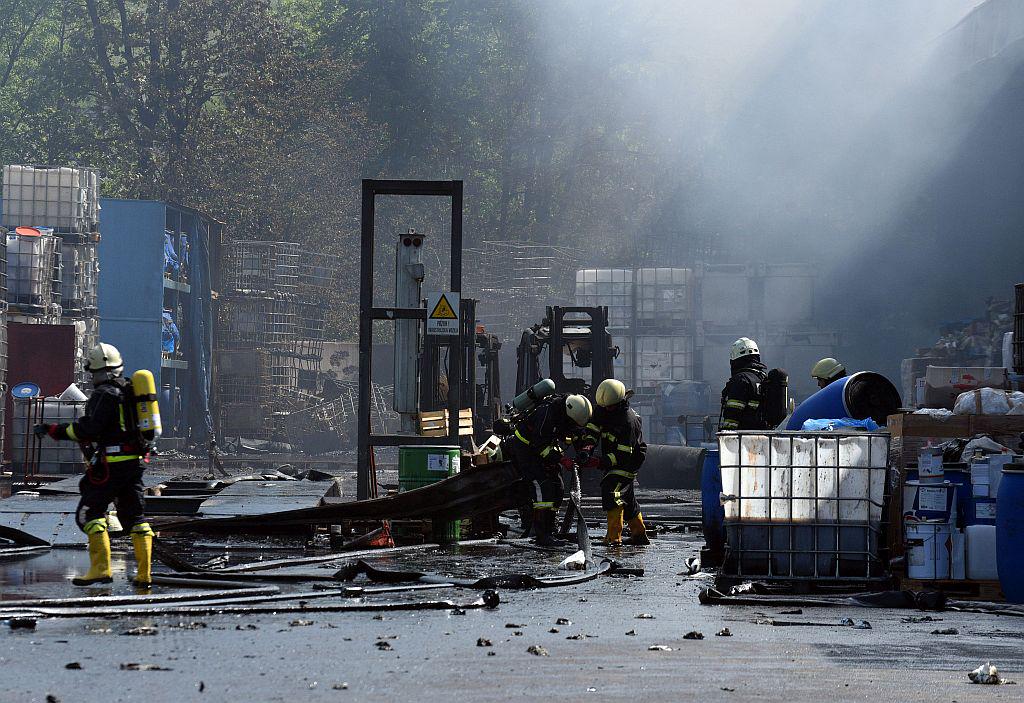Two months after the fire, the Clinical Institute of Occupational Medicine examined the health of 283 firefighters who were involved in the rescue effort (out of a total of 480). On Thursday, it presented a report on the health of the firefighters examined. One third of the examined firefighters are aged 20 to 29. 36 percent of them were trying to put out a fire, while the rest were or fire-watch duty or doing something else. On average, they were putting out fires 8 hours a day. Nine of them were exposed to water from the contaminated Tojnica stream. It was Kemis who paid for the medical examinations.
47 percent of the firefighters said they experienced health problems after the rescue operation, but in 92 percent of the cases those problems cleared up after a few weeks. Seven percent of them had impaired lung function, but the doctors said that those problems were not due to the fire at Kemis; the doctors believe that the real reason is smoking. 25 percent of them had impaired liver function, but perhaps that is due to alcohol consumption. Three firefighters said they had trouble breathing, but the doctors said they could not confirm that their problems appeared after the fire.
A high-risk profession and bad habits
The doctors said that they were concerned because one third of the firefighters examined were younger than 30, and 25 percent of them smoked. Smoking and being a firefighter is a bad combination, said Metoda Dodič Fikfak of the Clinical Institute of Occupational Medicine: “Being a firefighter and smoking is a deadly combination, being obese is another deadly combination, and drinking alcohol and putting out chemical fires is yet another deadly combination. One third of the firefighters surveyed are overweight, and many of them consume too much alcohol. However, they do work out a lot.”
Being a firefighter is more dangerous than it used to be decades ago because nowadays firefighters are often exposed to chemicals. Many firefighters die of cancer.


































































